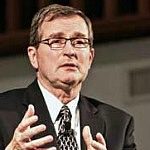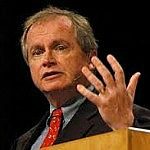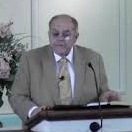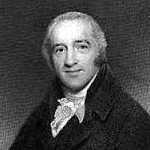Quotes about Responsibility-Human-Divine
Just as the rails of a train (track), which run parallel to each other, appear to merge in the distance, so the doctrines of God’s sovereignty and man’s responsibility, which seem separate from each other in this life will merge in eternity. Our task is not to force their merging in this life but to keep them in balance and to live accordingly.
When Charles Spurgeon was asked how these two grand, biblical doctrines could be reconciled, he responded as a real heir of the Puritans: “I didn’t know that friends needed reconciliation.” He went on to compare these two doctrines to the rails of a track upon which Christianity runs. Just as the rails of a train, which run parallel to each other, appear to merge in the distance, so the doctrines of God’s sovereignty and man’s responsibility, which seem separate from each other in this life, will merge in eternity. The Puritans would wholeheartedly concur. Our task, they said, is not to force their merging in this life but to keep them in balance and to live accordingly. We must thus strive for experiential Christianity that does justice both to God’s sovereignty and to our responsibility.
The Scriptures recognize both the sovereignty of God, and the free agency, and accountability of man. Consciousness assures us of the latter. The nature of God…proves the former. The Bible makes no attempt to reconcile the two.
So while the Bible asserts both God’s sovereignty and people’s freedom and moral responsibility, it never attempts to explain their relationship.
Trusting God, 1988, p. 67. Used by permission of NavPress – www.navpress.com. All rights reserved. Get this book!
Jesus’ balance mirrored the balance of Scripture: He could simultaneously denounce the cities that did not repent and praise the God who does not reveal; for God’s sovereignty in election is not mitigated by man’s stubbornness and sin, while man’s responsibility is in no way diminished by God’s “good pleasure” that sovereignty reveals and conceals (Mt. 11:25-26).
The Gospel of Matthew, EBC, Zondervan, www.zondervan.com, 1984, p. 275. Get this book!
Biblical writers in both the OT and NT have, on the whole, fewer problems about the tension between God’s sovereignty and man’s responsibility than do many moderns. This is not because they fail to distinguish purpose and consequence, as many affirm, but because they do not see divine sovereignty and human responsibility as antitheses. In short they are compatibilists and therefore juxtapose the two themes with little self-conscious awareness of the problem (cf. Gen. 50:19-20; Jud. 14:4; Isa. 10:5-7; Hag. 1:12-14; Jn. 11:49-52).
The Gospel of Matthew, EBC, Zondervan, www.zondervan.com, 1984, p. 309. Get this book!
God is sovereign, but parents are responsible. God’s sovereignty is our hope. Parents are utterly dependent on God. He can save any child, no matter how dark the circumstances. On the other hand, God normally reaches children through their parents. It is fatal to presume on God’s sovereignty by neglecting parental faithfulness. Yet it is also a mistake to assume that it all depends on us. It doesn’t. In fact, none of your efforts will prevail unless God bestows the gift of faith on your children. We are utterly dependent and responsible at the same time.
Gospel-Powered Parenting, 2009, P&R Publishing, p. 22, Used by Permission. Get this book!
All who are saved are saved as a result of what God does. All who are lost are lost as a result of what they do.
Now if you have a problem matching up that sovereignty of God with human responsibility, admit that you don’t know everything and the problem is solved. Because I also know that the gospel extends to the end of the earth and Jesus was the one who said, “Come unto Me, all ye that labor and are heavy laden and I’ll give you rest.” We understand the gospel invitation. We understand the call. We understand the tears of Jesus over those who wouldn’t come. We understand the responsibility of the sinner who rejects the gospel and perishes and he is being punished for his own choice. We understand that. How that harmonizes with this doctrine, I do not understand. I may never understand it even in eternity because I will never be God. But I will let God be God and I will not redefine God on my terms… I also understand at the same time that God holds every sinner responsible for their own rejection and gives them the opportunity to receive Him. And it makes perfect sense to Him though it’s apparently paradoxical to me. But I will not err on the severe side of diminishing the sovereignty of God by eliminating this glorious truth.
What Makes Jesus Rejoice – Part 3? The article originally appeared (https://www.gty.org/library/sermons-library/42-140/what-makes-jesus-rejoice-part-3) at www.gty.org. © 1969-2008. Grace to You. All rights reserved. Used by Permission.
Divine predestination, divine providence, divine power, divine purpose; divine planning does not void human responsibility.
Table Talk on Trouble and Triumph, Part 1. The sermon originally appeared at: (https://www.gty.org/library/sermons-library/42-270/table-talk-on-trouble-and-triumph-part-1) at www.gty.org. © 1969-2008. Grace to You. All rights reserved. Used by Permission.
The paradox between divine sovereignty and human responsibility. This is an apparent paradox – not a true paradox, but an apparent paradox – which faith accepts while reason rejects. Faith accepts, because faith acknowledges that we don’t have all the information, but we trust God. Faith accepts this. Reason rejects it, and that’s because reason is finite.
Table Talk on Trouble and Triumph, Part 1. The sermon originally appeared at: (https://www.gty.org/library/sermons-library/42-270/table-talk-on-trouble-and-triumph-part-1) at www.gty.org. © 1969-2008. Grace to You. All rights reserved. Used by Permission.
No one can enter the kingdom without the invitation of God, and no man can remain outside of it but by his own deliberate choice. Man cannot save himself; but he can damn himself (T.W. Manson).
In considering the conflict between the sovereignty of God in election and the human responsibility, J.I. Packer writes: What is an antinomy? The Shorter Oxford Dictionary defines it as ‘”a contradiction between conclusions which seem equally logical, reasonable or necessary.” For our purposes, however, this definition is not quite accurate; the opening words should read “an appearance of contradiction.” For the whole point of an antinomy – in theology, at any rate – is that it is not a real contradiction, though it looks like one. It is an apparent incompatibility between two apparent truths. An antinomy exists when a pair of principles stand side by side, seemingly irreconcilable, yet both undeniable.
Evangelism and the Sovereignty of God, InterVarsity Press p. 18.
Get this book!
C.H. Spurgeon was once asked if he could reconcile these two truths to each other. “I wouldn’t try,” he replied; “I never reconcile friends.” Friends? – yes, friends.This is the point that we have to grasp. In the Bible, divine sovereignty and human responsibility are not enemies. They are not uneasy neighbors; they are not in an endless state of cold war with each other. They are friends, and they work together.
Evangelism and the Sovereignty of God, InterVarsity Press p. 35-36.
Get this book!
Side by side with the immutability and invincibility of God’s decrees, Scripture plainly teaches that man is a responsible creature and answerable for his actions. And if our thoughts are formed from God’s Word the maintenance of the one will not lead to the denial of the other. That there is a real difficulty in defining where the one ends and the other begins, is freely granted. This is ever the case where there is a conjunction of the Divine and the human.
Attributes of God.
Get this book!
Embrace the paradox of God’s sovereignty and man’s responsibility. The sad thing is that some embrace the sovereignty of God over the human will and say: “It is wrong to portray God with His arms stretched out, inviting and calling.” And others embrace the responsibility of man and say, “If God invites and calls and beckons, then he can’t really be sovereign over man’s will, and man really is ultimately self-determining and God is not really in control of all things.” Both of these are sad mistakes. It is sad, because one group rejects something deep and precious that God has revealed about Himself for our strength and hope and joy and love – namely, his absolute sovereignty. Oh, how sweet it is when all around our soul gives way, and we need a reliable and firm rock in a world that sometimes seems utterly out of control and meaningless and cruel. Oh, how sweet at these times to know that God is not good and helpless, but good and sovereign. And the other group (who embrace the sovereignty of God) sometimes rejects something utterly crucial for understanding the justice of God in dealing with people, and they fail to see how we should plead with people and persuade people and invite people and woo people with tears, to Christ, and on behalf of Christ.
How Shall People Be Saved? Part 2. Romans 10:13-21, August 31, 2003. www.DesiringGod.org. Used by Permission.
When I come to a text which speaks of election, I delight myself in the doctrine of election. When the apostles exhort me to repentance and obedience, and indicate my freedom of choice and action, I give myself up to that side of the question.
If, then, I find taught in one place that everything is foreordained, that is true; and if I find in another place that man is responsible for all his actions, that is true; and it is my folly that leads me to imagine that two truths can ever contradict each other.
If, then, I find taught in one part of the Bible that everything is foreordained, that is true; and if I find, in another Scripture, that man is responsible for all his actions, that is true; and it is only my folly that leads me to imagine that these two truths can ever contradict each other. I do not believe that they can ever be welded into one upon any earthly anvil, but they certainly shall be one in eternity. They are two lines that are so nearly parallel, that the human mind which pursues them farthest will never discover that they converge, but they do converge and they will meet somewhere in eternity, close to the throne of God, whence all truth doth spring.












